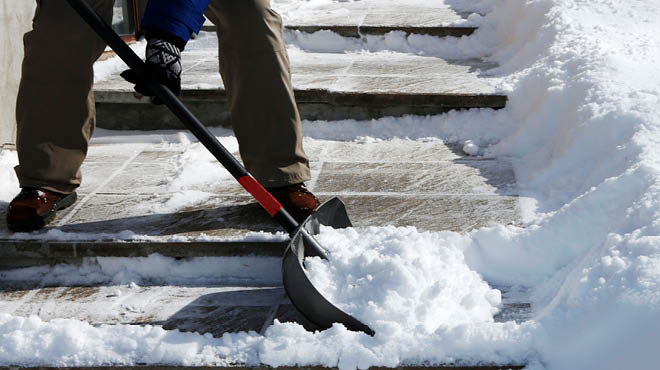Farm safety first: Tips for preventing injuries during harvest

Farmers can spend countless hours in combines, tractors, trucks and other equipment in fields and on roads. Living and working on a farm can be rewarding. However, it also can be dangerous, especially during harvest time.
People involved in agriculture need to be well-prepared and safe. Powerful machinery, isolated jobs and long hours during harvest increase the risk of farm-related injuries and fatalities.
Remembering a few safety practices and picking up a new tip or two can help make farming as safe as possible. Consider these tips:
- Carry a first aid kit with a tourniquet.
Do you have a first aid kit with a tourniquet? If not, you really should. These tools save lives and limbs. Uncontrolled bleeding from arms and legs is the most preventable cause of death in injured patients. It's important to control and stop the bleeding. - Create a plan.
Share with your family or team where and how long you plan to work, and set ongoing check-in times so someone knows you're OK. - Follow safety recommendations.
While farming may not be a fashion show, having the right clothing and protective equipment is important. Wear sturdy shoes with proper grip and as well as use noise protection products, such as earmuffs, around loud equipment. Avoid wearing baggy clothing or loose jewelry that could get pulled into moving parts. When using chemicals or pesticides, wear gloves, eye protection and a respirator. - Gear up with proper clothing and protection.
While farming may not be a fashion show, having the right clothing and protective equipment is important. Wear sturdy shoes with proper grip and as well as use noise protection products, such as earmuffs, around loud equipment. Avoid wearing baggy clothing or loose jewelry that could get pulled into moving parts. When using chemicals or pesticides, wear gloves, eye protection and a respirator. - Remain hydrated, and don't skip meals.
Dehydration and hypoglycemia, or low blood sugar, can be more dangerous than many realize. Ensure you drink plenty of water and eat consistent, nutritious meals throughout the day. - Stay rested.
Being overly tired creates an impaired mental state comparable to intoxication. Most farmers wouldn't consider operating their equipment while drunk, but many still work 20-hour days during harvest. Don't sacrifice your well-being for the sake of efficiency. - Take breaks.
It's important to reset and refocus from time to time. Take regular breaks to give your body and mind a chance to recuperate. - Use sunscreen.
UV rays from the sun can cause skin damage, even in autumn. The American Academy of Dermatology recommends using sunscreen with an SPF of at least 30. Use sunscreen even on cloudy or cool days because damage from the sun's rays still can occur. - Work during daylight hours.
The more hours you put in after dark, the greater your risk of injury. Do the bulk of your work while the sun is still up.
Importance of tourniquets
One of the most lifesaving tools on any farm is a tourniquet. Accidents can happen without warning, and a person with uncontrolled bleeding can die within five minutes. That's why it's critical to control and stop bleeding as soon as possible.
Learn how to use a tourniquet:
Tourniquets are inexpensive, easy to use and small to store in a truck, combine, workshop or other locations around the farm. Always keep a first aid kit with a tourniquet close at hand when working on the farm or in the fields.
Harvest season is a memorable time filled with hard work and family traditions. But it also can be dangerous if you don't take the proper precautionary measures. Remember these tips to stay safe, healthy and happy on the farm and in the field.
Kyle Elliott is a nurse practitioner in the Emergency Department in St. James, Minnesota.



